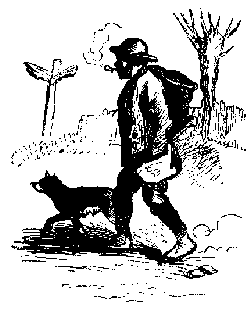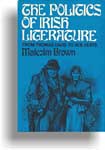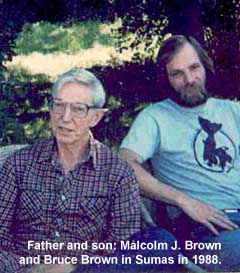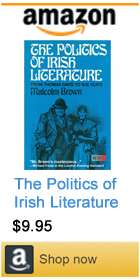Chapter Eleven
Fenianism Mobilizes
THE NATION estimated that the physical force impulse was totally extinguished in Ireland by the time O'Donovan Rossa came out of Tralee jail in 1859. A. M. Sullivan felicitated himself on his editorial accomplishment. The Fenians naturally put forward the opposite prediction, and before the year was out James Stephens was back at work in Skibbereen. The story of his reunion with the released prisoners has been preserved in Rossa's childlike prose, telling how half a dozen Phoenix men met him in Bantry: "We went in Denis O'Sullivan's yacht to Glengarriff, where we had dinner. Stephens paid for the dinner. Sailing through Bantry bay, Stephens was smoking a pipe. I remember his taking the pipe in his hand, and saying he would not give the value of that dudeen for the worth of Ireland to England after the death of Queen Victoria; that she, in fact, would be the last English reigning monarch of Ireland."'
In prognostication Stephens was not omniscient. Rossa wondered whether he himself believed what he told others: "I do not know did he speak that way that day in Bantry bay, from the strong faith he had in the success of his own movement. Anyway, the way he always spoke to his men seemed to give them confidence that he was able to go successfully through the work that was before him, and before them. That was one of his strong points, as an organizer." Stephens' vision of Ireland's future was too enthusiastic in its timing, yet it was not inaccurate in substance. Victoria herself would never see the end of the Union, but in the midst of the Fenian excitement the future English monarch was born who would. Sullivan's prediction, on the other hand, was absolutely wrong, and he was shortly forced to retract his self-congratulation: "Foolish was the best of our wisdom in thinking this was the end." The Phoenix affair was not the finale of Fenianism, but the overture.
Leaving the Skibbereen veterans to run on their own steam, Stephens now concentrated his energy upon building up the pressure in Dublin. He found the city full of hidden nationalists waiting to be asked, and the serious swearing in of new members quickened. In about a year the organization was ready to demonstrate its strength in public. The issue chosen, the most perfect Ireland could offer, had to do with a wake.
II
Among the seven Young Ireland felons in Van Diemen's Land, the least conspicuous was Terence Bellew MacManus. His history was about the same as Meagher's. After Ballingarry he was captured, tried, convicted, sentenced to death, reprieved, transported, and at last rescued and set ashore a free man in San Francisco, where he settled down in the grocery business. Early in 1861 he died there, still a young man, still unrepentant. Some months afterward a group of San Francisco Fenians hit upon the idea of agitating for the cause by digging up the corpse and shipping it back to Ireland for reburial. Since there was not yet a transcontinental railroad, the project was a considerable undertaking. But a committee formed, money accumulated, and in due course the coffin set forth on its journey. As the Irish nationalist press proudly noted, it was the longest funeral procession attempted in all history, outdistancing by far the return of Napoleon's bones from St. Helena.
The body arrived in Dublin at dawn one Monday and the grand finale was scheduled for the Sunday following. A delegation waited upon Archbishop Cullen requesting him to permit the corpse to lie in state in the Marlborough Street cathedral for the six days before the burial, and also to furnish the same lavish obsequies that had been provided by Archbishop Hughes when the corpse passed through New York. Cullen was trapped in a dilemma. To accede to the Fenian request would sanctify wickedness. But to refuse would desecrate the rigid formalism of the death protocol, offend the flock, and isolate the hierarchy. The troubled archbishop elected the latter choice. The cathedral was closed to the mourners, and the corpse had to be carried down the street to the Mechanics Institute to repose there in state until next Sunday.
Cullen's boycott of the MacManus funeral forced Dublin to declare its allegiance in public. Down to the last hour it was not certain which side it would choose. Luby went to the Mechanics Institute Sunday morning in the rain and was disturbed to find nobody about. After a while a few people wandered in, then some more. In midafternoon, when the procession was ready to start, the brass bands appeared and led out with a funeral march. Luby fell into rank behind the coffin, not certain whether anybody was behind him. The procession moved north up Gardiner Street, and as it turned west into Great Britain Street, he glanced back at the squares along the river where the procession was forming. "Then, indeed, I was overawed," he said. "I saw the whole length of Gardiner Street filled with dense masses of men, and fresh masses, endlessly, as it seemed." Dublin had voted with its feet, and no mistaking its choice. The multitudes that Stephens had promised were really there. The burial of a man almost unknown except as a token of nationality had brought out fifty thousand marchers, more than had followed the coffin of world-famed O'Connell. Onlookers numbered one hundred thousand more. "I could have sobbed and cried," said Luby. "I felt, as I never felt before or since, the grandeur, the magnetism of an immense crowd of human beings, when all are, for the time being, gloriously animated with one and the same noble aspiration and conviction..."
|
|
Table of Contents
|

|
Astonisher.com is pleased to offer these excerpts from The Politics of Irish Literature by Malcolm Brown...
Praise for
The Politics of Irish Literature |
 |
|
"This brilliant study of the intersection of politics and literature in Ireland amounts to a dazzling portrait gallery. Reading it one feels about one the breath, warmth, and passions of the dead all come alive again."
-- Sean O'Faolain in the Manchester Guardian
"Mr. Brown's masterpiece has made me want to hire a nearby housetop and recite whole chunks to every passerby..."
-- Michael Foote in the London Evening Standard
"The author of the best book on George Moore now gives us what is in all likelihood the best book on the politics of modern Irish literature."
-- Virginia Quarterly Review
|
|

University of Washington Professor Malcolm J. Brown (1910 - 1992) with his son, Bruce Brown, in Sumas, WA, July 1988.
|
Additional reading -- Malcolm Brown's George Moore: A Reconsideration. Also see Bruce Brown's commentary on The History of the Corporation for Malcolm Brown's contribution to that work.
|
|
|






